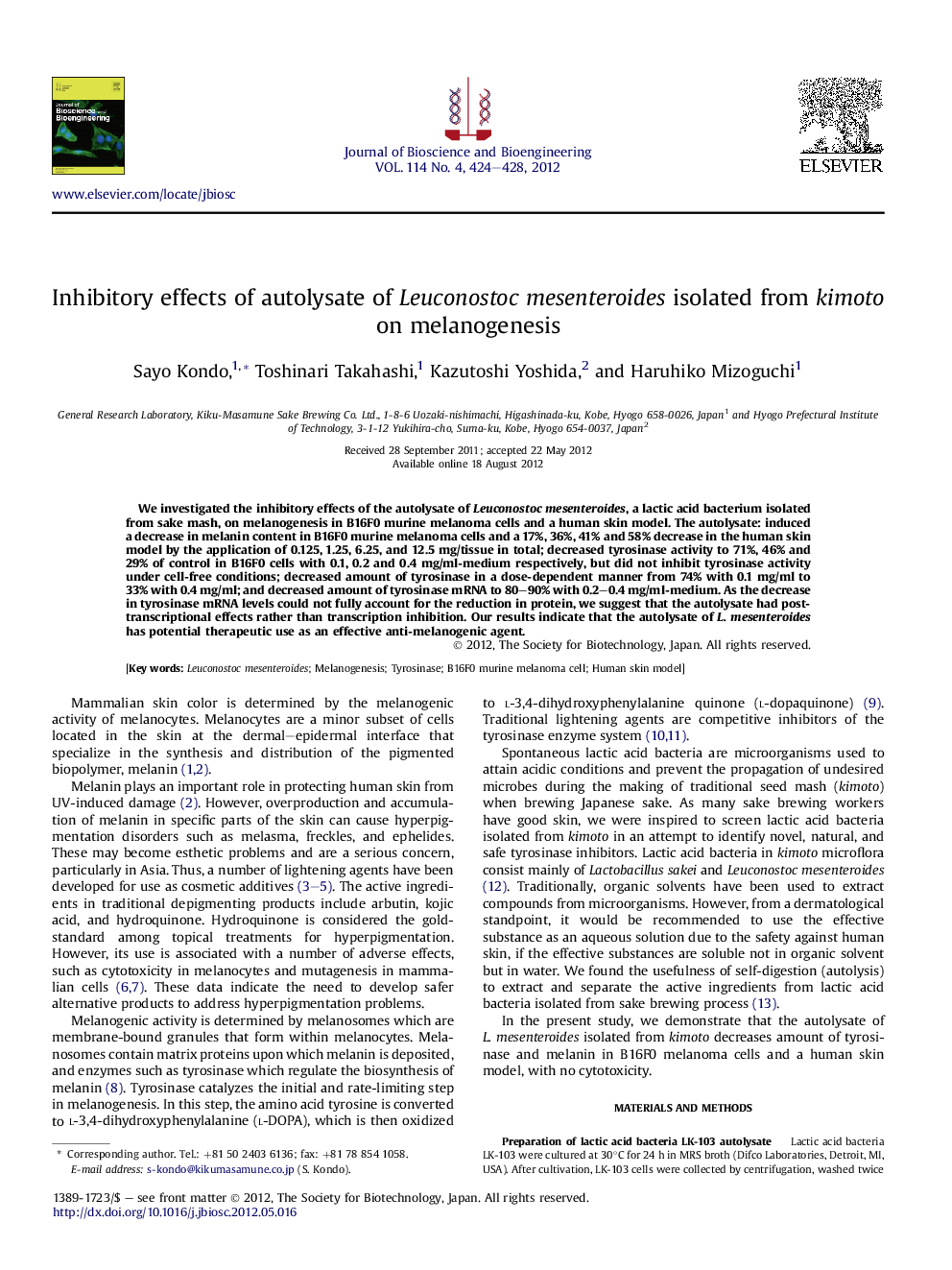| Article ID | Journal | Published Year | Pages | File Type |
|---|---|---|---|---|
| 20915 | Journal of Bioscience and Bioengineering | 2012 | 5 Pages |
We investigated the inhibitory effects of the autolysate of Leuconostoc mesenteroides, a lactic acid bacterium isolated from sake mash, on melanogenesis in B16F0 murine melanoma cells and a human skin model. The autolysate: induced a decrease in melanin content in B16F0 murine melanoma cells and a 17%, 36%, 41% and 58% decrease in the human skin model by the application of 0.125, 1.25, 6.25, and 12.5 mg/tissue in total; decreased tyrosinase activity to 71%, 46% and 29% of control in B16F0 cells with 0.1, 0.2 and 0.4 mg/ml-medium respectively, but did not inhibit tyrosinase activity under cell-free conditions; decreased amount of tyrosinase in a dose-dependent manner from 74% with 0.1 mg/ml to 33% with 0.4 mg/ml; and decreased amount of tyrosinase mRNA to 80–90% with 0.2–0.4 mg/ml-medium. As the decrease in tyrosinase mRNA levels could not fully account for the reduction in protein, we suggest that the autolysate had post-transcriptional effects rather than transcription inhibition. Our results indicate that the autolysate of L. mesenteroides has potential therapeutic use as an effective anti-melanogenic agent.
